What changes cause tender breasts in premenstrual symptoms?
it is normal to experience breast tenderness before the period due to hormonal fluctuations. During the menstrual cycle, estrogen and progesterone levels fluctuate, which can cause changes in the breast tissue, leading to breast tenderness and swelling.
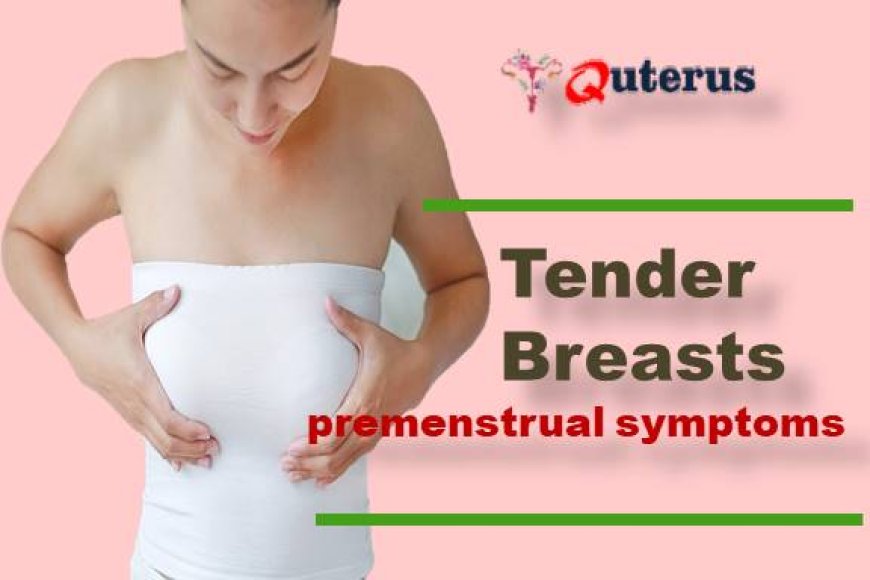
What changes cause tender breasts in premenstrual symptoms?
Tender breasts are a very common symptom of premenstrual syndrome (PMS) that women may experience in the days leading up to their period. Hormonal changes in the menstrual cycle can cause breast tenderness.
The menstrual cycle involves complex hormonal changes, including fluctuations in estrogen and progesterone levels, that may cause breast tenderness, swelling, and discomfort.
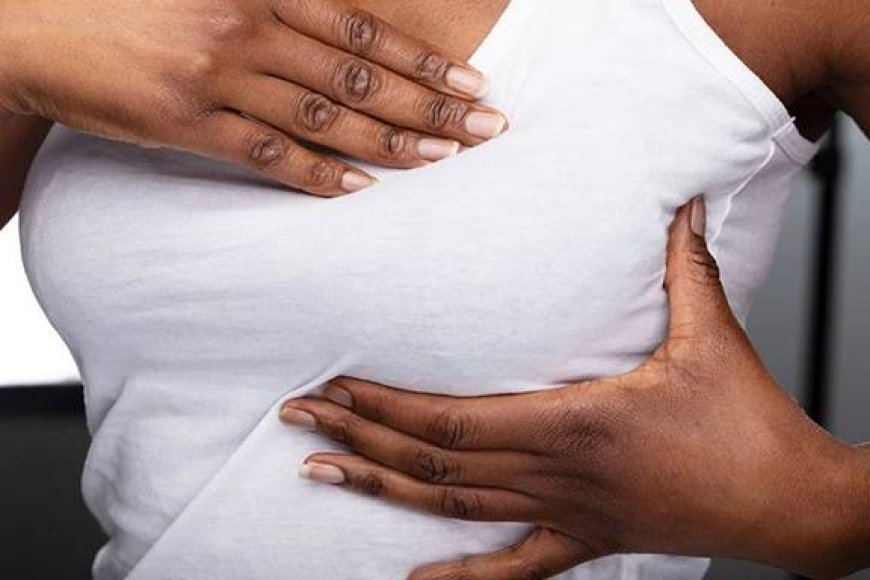
To alleviate tender breasts during PMS, women can try the following:
• Wear well-fitted and supportive bras to reduce breast movement in order to minimize the pain and discomfort.
• Applying a heating pad to the breasts can relieve tenderness and discomfort.
• Over-the-counter pain relievers like ibuprofen can alleviate the discomfort associated with tender breasts.
If the pain is severe or persistent, or if there are lumps or other changes in the breast, women should consult their healthcare provider to rule out any underlying medical conditions such as fibroadenoma or cysts. A healthcare provider may suggest lifestyle modifications, hormonal treatments, or prescription medications to manage symptoms. It is important for women to regularly perform breast self-exams, particularly before and after a period to be aware of any changes in their breasts.

Learn from the video also tender breasts
What Can Cause Breast Pain?
Why Your Boobs Hurt Before Your Period
SORE BOOBS before your period? Here's Why & What To Do About It
Breast tenderness before period vs early pregnancy sign
Causes of missed periods and breast tenderness
Breast Pain During Intermenstrual Period Know as FIBROCYSTIC BREAST DISEASE
Breast Pain Before Period: Is It Normal?

Frequently Asked Questions
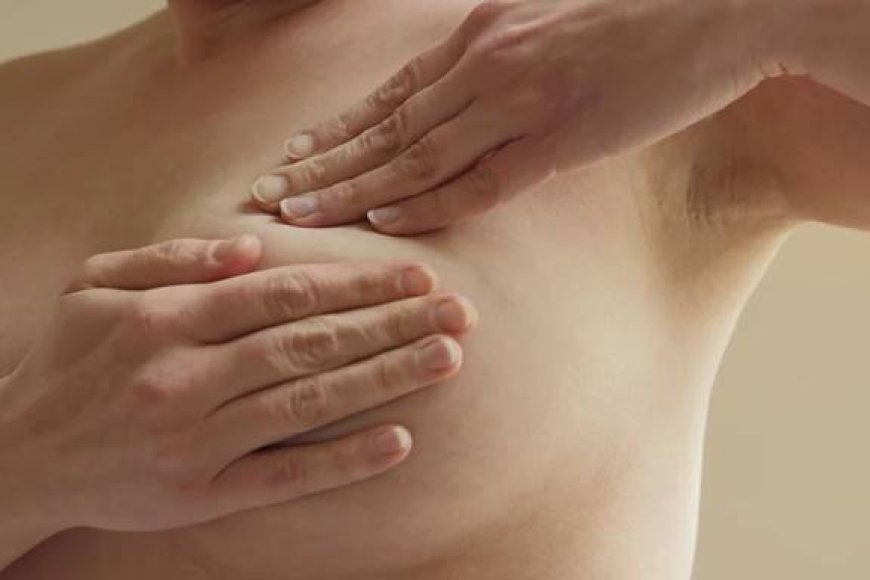
Is it normal to get tender breasts before period?
Yes, it is normal to experience breast tenderness before the period due to hormonal fluctuations. During the menstrual cycle, estrogen and progesterone levels fluctuate, which can cause changes in the breast tissue, leading to breast tenderness and swelling. These hormonal changes can also cause fluid retention in the breast, which can cause discomfort. Breast tenderness is a common PMS symptom that many women experience, and it typically resolves on its own once the period starts. However, if breast pain is severe, lasts for more than a week, or is accompanied by other symptoms like lumps, nipple discharge, or an increase in breast size, it is essential to speak to a healthcare provider to rule out any underlying breast conditions.
What kind of breast pain indicates periods?
Breast pain that indicates periods is usually described as a tenderness or sensitivity that occurs in the days or weeks leading up to the onset of menstruation. The pain may be localized to one or both breasts and vary in severity, leading to discomfort or soreness that can make it uncomfortable to wear a bra or participate in physical activities. This type of breast pain is typically related to hormonal fluctuations and is often accompanied by other PMS symptoms like mood swings, bloating, and headaches. The pain generally resolves on its own once menstruation begins, but it is essential to speak to a healthcare provider if breast pain is severe or lasts for more than a week or is associated with other symptoms, such as lumps, discharge, or changes in the nipple appearance, as these may indicate an underlying breast condition.
Do nipples hurt before period?
Yes, it is possible to experience nipple pain or tenderness before the period, which is a common PMS symptom. Nipple pain may also be accompanied by other breast-related symptoms, such as breast tenderness, swelling, or heaviness. Like other menstrual cycle-related symptoms, nipple pain is typically due to hormonal fluctuations, primarily in estrogen and progesterone levels, which cause changes in the breast tissue. Nipple pain may also occur during ovulation, or due to certain medications or medical conditions. It is essential to consult with a healthcare provider if nipple pain is severe, prolonged, or accompanied by other symptoms, as these may indicate an underlying medical condition that requires further evaluation and treatment.
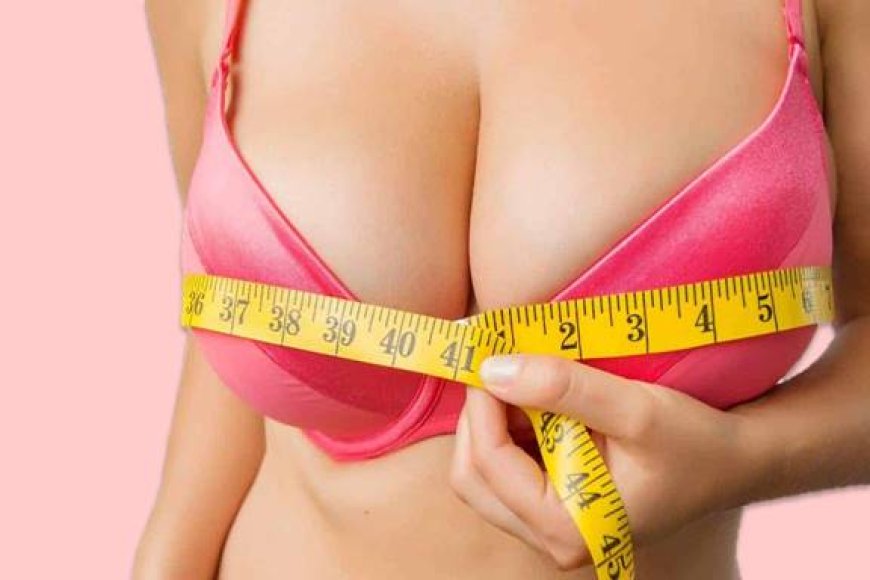
Why do my breasts feel heavy and sensitive?
Breasts may feel heavy and sensitive due to various reasons, including hormonal fluctuations, pregnancy, breastfeeding, weight fluctuations, or fibrocystic breast changes. Hormonal fluctuations during the menstrual cycle, especially in the luteal phase, can cause fluid retention in breast tissues, leading to heaviness and sensitivity. During pregnancy, increased levels of hormones can cause similar changes in breast tissues. Breastfeeding can also cause heaviness and sensitivity due to milk production and flow. Significant weight fluctuations and fibrocystic breast changes can also cause breast heaviness and sensitivity. If breast heaviness and sensitivity are accompanied by other symptoms like lumps, redness, discharge, or pain that doesn't go away, it is essential to speak to a healthcare provider to rule out any underlying breast conditions.
Is breast tenderness difference between PMS and pregnancy?
Breast tenderness can be a common symptom experienced during both PMS and pregnancy due to hormonal fluctuations. However, there are some differences that may help to distinguish between the two causes:
Timing : Breast tenderness is typically experienced a few days before menstruation onset in PMS cases, whereas, in pregnancy, it can subside after the first trimester.
Severity : Breast tenderness caused by pregnancy is usually more severe than during PMS.
Nipple changes : Nipple sensitivity or darkening is usually observed during early pregnancy rather than during PMS.
Other symptoms : Bloating, mood swings, and headaches are common symptoms seen during PMS, whereas morning sickness, fatigue, and frequent urination are typically observed during pregnancy.
If there is a suspicion of pregnancy, a home pregnancy test or consultation with a healthcare provider is necessary to confirm the diagnosis. If breast pain is severe or persistent, healthcare provider consultation is always recommended to rule out underlying conditions and provide appropriate management.
How much bigger do your breasts get during period?
It is normal to experience slight breast swelling and growth during the menstrual. However, the amount of growth can vary between women, and it is challenging to predict an exact size increase. Some women may not experience any noticeable growth, while others may notice a difference in breast size of up to a half cup size or more. Breast growth and swelling are typically due to the hormonal fluctuations that occur during the menstrual cycle. Hormones estrogen and progesterone increase before menstruation, which can cause fluid retention and breast tissue swelling, leading to a temporary increase in breast size. The breast size returns to normal once menstruation ends. If there is significant and persistent breast growth, it is essential to speak to a healthcare provider to rule out any underlying conditions.
Is breast tenderness ovulation or PMS?
Breast tenderness can occur due to hormonal fluctuations during ovulation and PMS. During ovulation, there is a surge of luteinizing hormone (LH) that triggers ovulation. This surge in LH also causes a rise in estrogen levels, which can lead to temporary breast tenderness. Similarly, in the days leading up to menstruation in PMS, hormonal fluctuations lead to fluid retention and swelling in the breast tissue, which can cause breast tenderness.
The difference between ovulation and PMS-related breast tenderness depends on timing. Ovulation-related breast tenderness occurs mid-cycle, which typically lasts for a few days. Whereas PMS-related breast tenderness can occur anytime in the premenstrual phase leading up to menstruation, which typically lasts for a few days to a week.
However, breast tenderness could be a symptom of an underlying condition, so it is essential to speak to a healthcare provider if the pain is severe, lasts for more than a week, affects only one breast, or is accompanied by other symptoms such as nipple discharge, lumps, or fever.
Does ovulation cause sore nipples?
Ovulation can cause sore nipples in some women due to hormonal fluctuations. As hormone levels rise and fall during the menstrual cycle, they can cause changes in the body, including breast tenderness and nipple soreness. For example, estrogen levels increase during ovulation, which can cause breast tissue and milk ducts to swell, leading to nipple soreness or tenderness.
However, other factors could also cause nipple soreness or tenderness, such as friction or irritation from clothing, injury, infection, or poor breastfeeding techniques.
If nipple soreness is a concern, it's best to speak to a healthcare provider to rule out other underlying causes and discuss the best course of treatment.
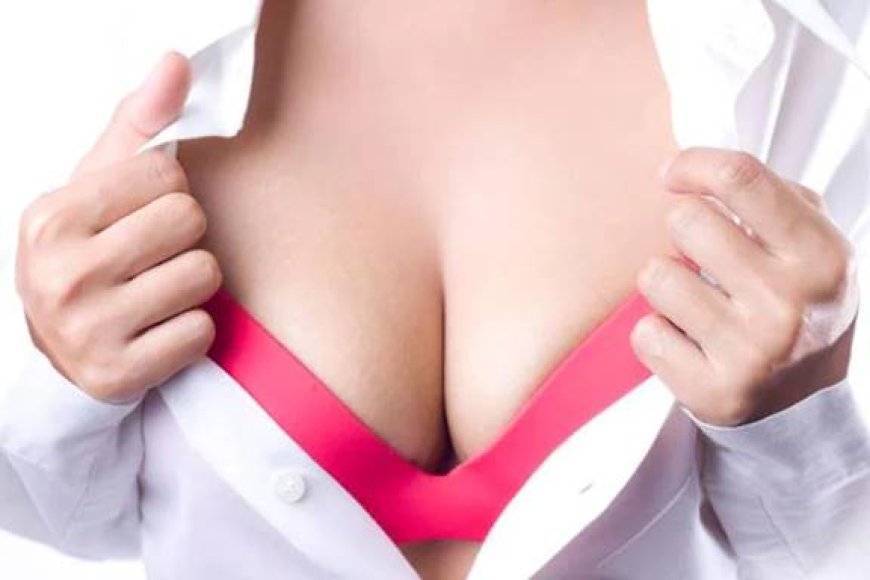
What hormone causes sore nipples?
Estrogen and progesterone are the hormones that can cause sore nipples or breast tenderness. They are the primary female hormones responsible for regulating the menstrual cycle and the changes that occur in the body during menstrual phases. The levels of these hormones rise and fall during the menstrual cycle, causing changes in breast tissue and milk ducts. For instance, estrogen stimulates the growth of breast tissue, while progesterone causes the milk ducts to expand and fill with milk. These hormone fluctuations can cause breast tenderness, soreness, and nipple sensitivity or soreness. However, other factors like injury, pregnancy, breastfeeding, or infection can also cause nipple soreness. If nipple soreness persists or is severe, it is essential to speak to a healthcare provider to rule out any underlying conditions and provide appropriate treatment.
Do breasts get bigger during your period?
Breasts can get slightly bigger during the menstrual cycle due to hormonal fluctuations. During the menstrual cycle, estrogen and progesterone levels rise and fall, which can cause breast tissue to swell and feel fuller. This swelling can also lead to temporary breast enlargement, which may result in a slight increase in breast size.
Breast size usually returns to normal after menstruation, but in some cases, women who experience significant swelling or breast enlargement during menstruation may experience a slight increase in breast size that persists.
However, it's crucial to note that breast size and shape can vary from person to person and depend on factors like age, weight, genetics, and lifestyle. If there are significant and lasting changes in breast size or shape, it's essential to speak to a healthcare provider to rule out any underlying conditions and provide appropriate management.
Why are my breasts so sore not on my period?
Breast soreness not related to the menstrual cycle can occur due to various reasons. These include:
Hormonal fluctuations: Hormonal changes during ovulation, pregnancy, or breastfeeding can cause breast soreness.
Injury or trauma: Physical activity, accidents, or injuries can cause soreness and tenderness of the breasts.
Fibrocystic breast disease: This condition is characterized by noncancerous lumps in the breasts that can cause soreness and tenderness.
Breast cancer: While rare, soreness can also be caused by breast cancer.
If breast soreness persists, it is essential to speak to a healthcare provider to rule out any underlying conditions and provide appropriate treatment. Depending on the cause, treatment could include medications, lifestyle changes, or surgery in more severe cases.
Why are my breasts sore?
Breast soreness can be caused by various reasons, including:
Hormonal fluctuations: Breast soreness is common before or during menstruation, pregnancy, and breastfeeding due to hormonal fluctuations.
Infection: Breast infections, such as mastitis, can cause soreness, redness, and tenderness in the breasts.
Fibrocystic breast disease: This condition is characterized by the development of lumps that are noncancerous and can cause soreness and tenderness.
Cysts or lumps: Cysts or lumps in the breast tissue can cause soreness, tenderness, and swelling in the breasts.
Medications: Some medications, such as hormonal therapies, can cause breast tenderness.
Injury or trauma: Physical activity, accidents, or injuries can cause soreness and tenderness of the breasts.
Breast cancer: While rare, soreness can also be caused by breast cancer.
If breast soreness persists or is accompanied by lumps, discharge, or changes in breast appearance or texture, it is essential to speak to a healthcare provider to rule out any underlying conditions and provide appropriate treatment. Treatment may include medications, lifestyle changes, or surgery in more severe cases.
How can I reduce breast tenderness?
There are several ways to reduce breast tenderness, including:
Supportive bras: Wearing a well-fitted and supportive bra can help reduce breast discomfort.
Diet: Limiting salty foods and caffeine during the menstrual cycle can help reduce fluid buildup and alleviate breast tenderness.
Heat or Ice: Applying heat or cold compresses can also help reduce breast soreness or tenderness.
Medications: Over-the-counter pain relievers such as ibuprofen or acetaminophen can reduce breast tenderness.
Supplements: Vitamin E and omega-3 fatty acids can reduce inflammation and relieve breast tenderness.
Hormonal therapies: If hormonal imbalances are causing breast tenderness, hormonal therapies such as birth control pills or hormone replacement therapy can help.
Exercise and stress reduction: Regular exercise and stress reduction techniques such as meditation or yoga can also help reduce breast tenderness.
If breast tenderness persists or is accompanied by other symptoms such as lumps, discharge, or changes in breast appearance or texture, it is essential to speak to a healthcare provider to rule out any underlying conditions and provide appropriate treatment.
Is breast tenderness good?
Breast tenderness is not harmful in most cases, but it may serve as an indication of underlying hormonal changes or an underlying medical condition that requires attention. In healthy women, breast tenderness is usually a normal occurrence and is often associated with hormonal changes during menstrual cycles. However, excessive breast tenderness, pain, or swelling may negatively impact daily life and should be addressed.
Breast tenderness is often observed during the first and second trimester of pregnancy and subsides as the pregnancy progresses, which is usually considered a typical occurrence. However, if breast tenderness continues or is accompanied by other concerning symptoms like lumps, fever, or discharge, it's essential to speak to a healthcare provider to rule out any underlying conditions and provide appropriate treatment.
In summary, while breast tenderness is not generally harmful, seeking medical attention when necessary is crucial to diagnose and address underlying causes, and ensure optimal overall health.
Should you massage tender breasts?
The general recommendation is that women with breast tenderness or soreness avoid massaging their breasts since it may be uncomfortable and may exacerbate breast tenderness.
Some women may find relief from using gentle massage techniques when they experience breast tenderness. However, it's essential to avoid excessive pressure or deep tissue massage, which can cause additional discomfort or increase swelling.
It's also important to note that if you have breast tenderness that's new or unusual for you, or if you notice any lumps or discharge from the nipple, it's essential to speak to a healthcare provider to rule out any underlying causes of breast tenderness.

We provide you with authentic, trustworthy and revelant information
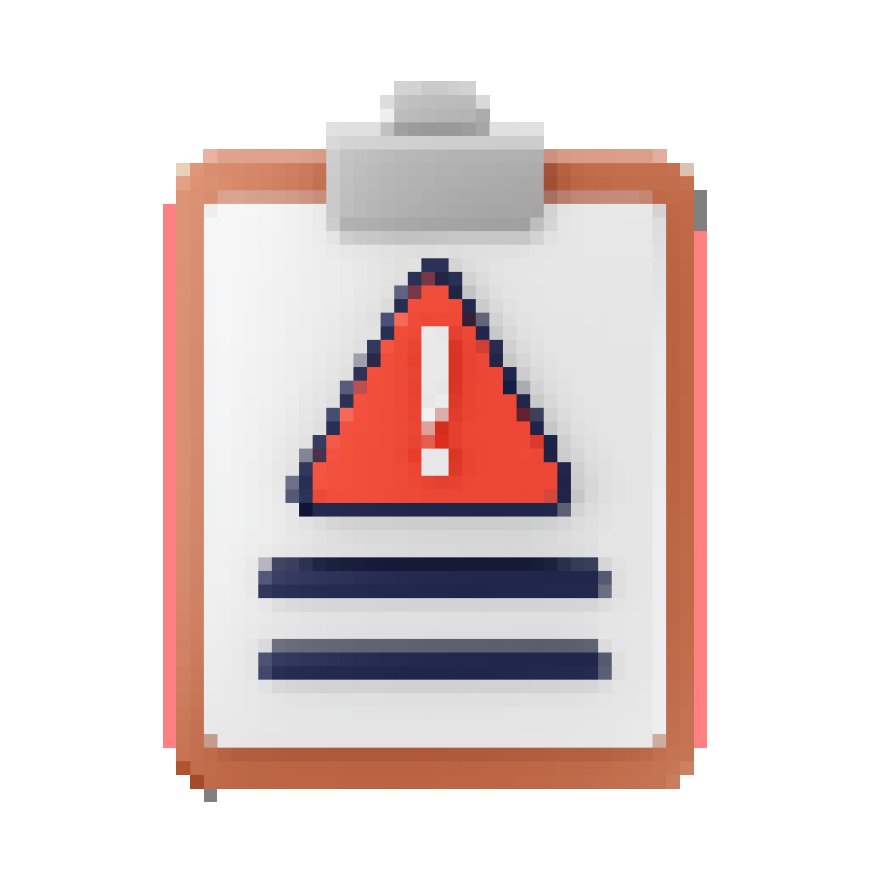
Have issue with the content?
 Disclaimer
Disclaimer
The information given on our website www.uterusq.com is being posted only for the purpose of knowledge and information, before using them, choose them completely and check the correctness with your subject matter expert. We (www.uterusq.com) have no responsibility for any kind of loss.







